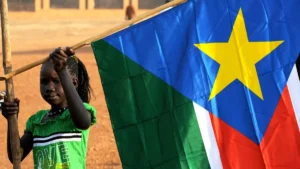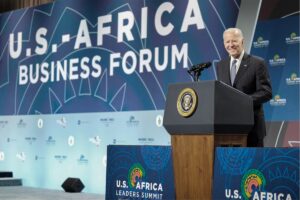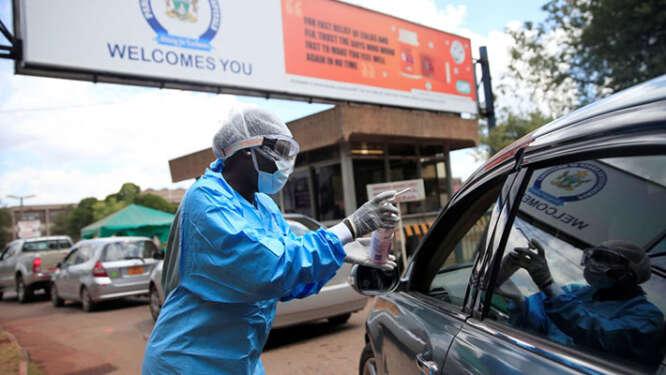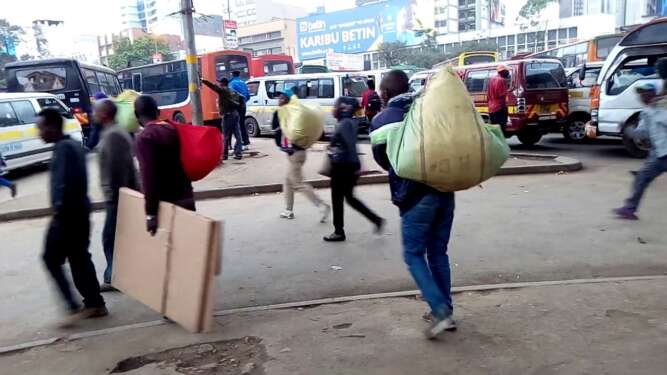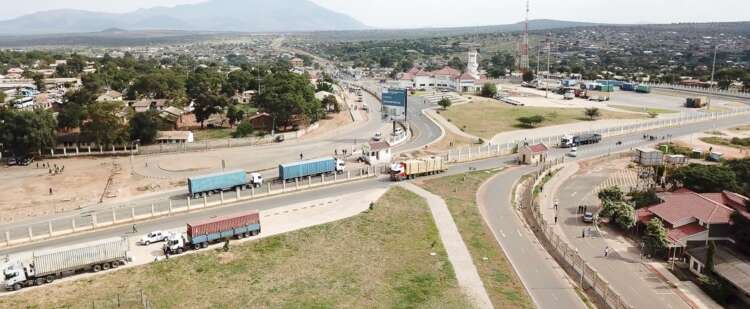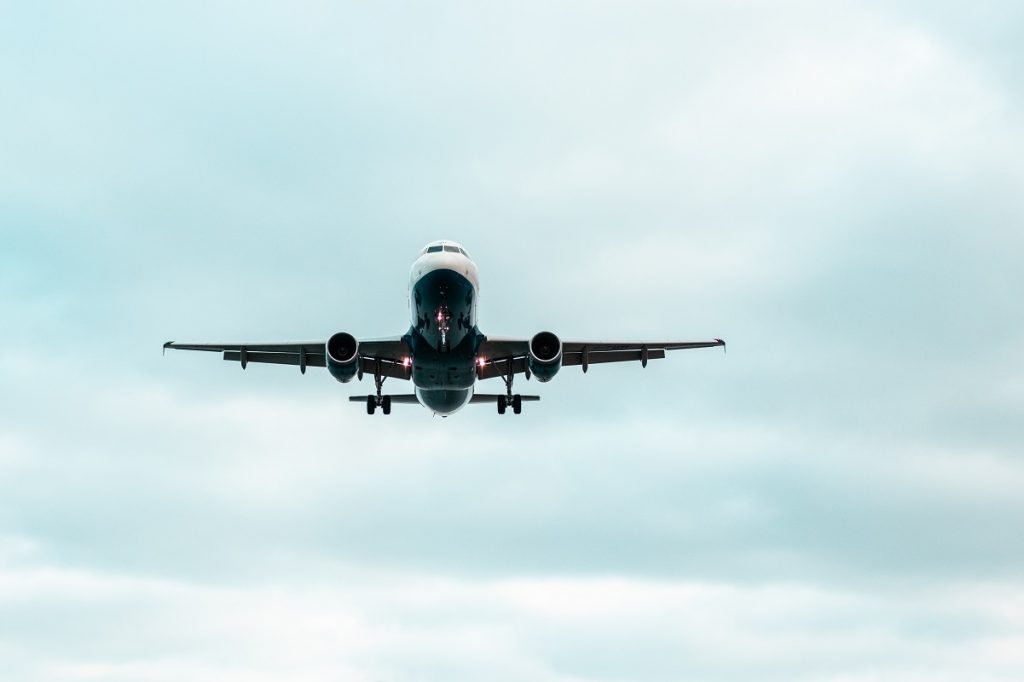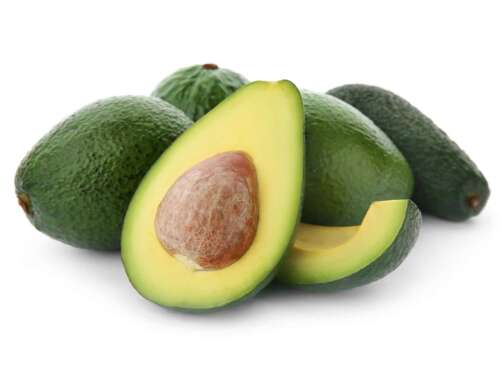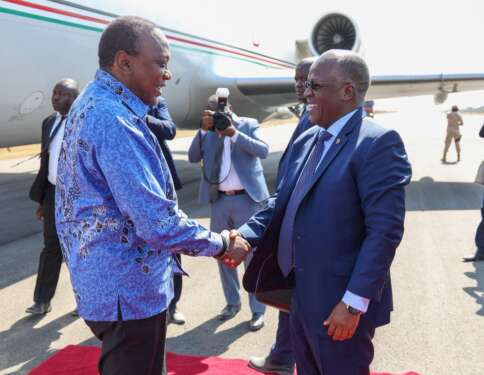- History beckons as push for Kenya’s Ruto to address US Congress gathers pace
- IMF’s Sub-Saharan Africa economic forecast shows 1.2 percent GDP growth
- The US Congress proposes extending Agoa to 2041, covering all African countries
- Millions at risk of famine as fuel tax row halts UN aid operations in South Sudan
- Empowering the Future: Humanity Protocol’s Dream Play Initiative
- TikTok Community Guidelines update aims to curb hate speech and misinformation
- Rwanda sees 39% surge in bank borrowers as Sacco and MFI loan uptake declines
- Kenya Ports Authority wins dispute case over cargo release
Browsing: COVID-19
In Africa, only South Africa and Morocco manage to produce 70 per cent to 80 per cent of their medicines while some Central African countries import close to 100 per cent of theirs.…
Africa has a sustainable development opportunity for business valued at US$7.7 trillion by 2030.…

The lockdown came to effect at the end of the week and involves restriction of movement as well as business operations. With borders closed, businessmen in the country fear worse losses than they are already suffering.
As of January 15, 2021 Zimbabwe had 25,365 confirmed coronavirus (COVID-19) cases and 636 deaths prompting more restrictions.
The lockdown means effective closure of what the country says are non-essential businesses and with it comes also the prohibition of large gatherings like weddings, parties and even religious events.
Issuing the announcement, Zimbabwe’s Vice-President Constantino Chiwenga said the government admits that there is a new Covid-19 outbreak and overwhelmed the country’s health institutions.
Chiwenga, who is also the Health Minister, said the lockdown also means a dusk-to-dawn curfew will …
Vaccine diplomacy will take centre stage for the global political economy in 2021. It is rapidly emerging as an important tool in the arsenal of global superpowers as they seek to expand their geostrategic influence amid the Covid-19 pandemic.
Affordable and equitable access to Covid vaccines has the potential to shape the global economic recovery, and speedy and effective rollout represents a huge opportunity to redraw global power maps and reshape strategic alliances. Naturally, the stakes are high, and the competition is intense to achieve both first-mover advantage and scale.
Africa will emerge as a theatre of competition. But with limited financial resources and a lack of bargaining power the option set will be limited for African countries as they try to procure the vaccine. This lopsided power dynamic, which has entrenched them firmly at the back of the vaccine queue, is being described as vaccine apartheid. John Nkengasong of …
With a growing middle class, Africa is now the frontier and the AfCFTA which is already ratified by 30 countries is just an opportunity to enhance investments in the continent.…
Informal Cross-Border Trade (ICBT) is a key component of intra-African trade which is wide-spread in its composition and is highest in Eastern Africa.…
For revival, financing is a way of providing solutions to the challenges of private sector funding.…
President Uhuru Kenyatta has urged the Africa Centres for Disease Control and Prevention (Africa CDC) to prepare harmonised COVID-19 protocols that will ensure participants are safe during the African Union meetings scheduled for February next year.
President Kenyatta emphasized that the protocols will determine whether the African Union (AU) meetings will be virtual or physical given the challenges occasioned by the COVID-19 pandemic.
“The Africa Centres for Disease Control and Prevention should give protocols that they think will ensure participants are safe and that will determine whether we will have virtual or physical meetings,” the President said.
President Kenyatta spoke Thursday evening during a virtual meeting of the Bureau of the Assembly of the AU Heads of State and Government and chairpersons of the Regional Economic Communities (RECs).
Also read: Housing and construction sector key in post pandemic recoveries -Uhuru Kenyatta
The meeting was convened by President Cyril Ramaphosa of …
Last year, the International Food Policy Research Institute (IFPRI) released a report indicating that Kenyan farmers could benefit more by exporting their avocados to the high-value European market.
The report showed that a European market could raise incomes of Kenya’s smallholder avocado farmers by nearly 39 per cent and fetch better prices for their produce.
Mulubrhan Amare, the lead author and senior researcher at IFPRI noted that international agricultural markets generally offer higher price and demand higher quality in comparison to the local markets in Kenya.
Read: Horticulture exports gaining momentum
In September, Kenya’s horticulture industry was optimistic that there would be a quick recovery as the global economy slowly opened after the Covid-19 disruption.
Export earnings from horticulture hit KSh72 billion (US$655 million) between January and May 2020, up from KSh65 billion (US$594 million) for the same period last …
By seeking strength in numbers, the region’s tourism sector players are banking on an expanded offering covering the six partner states…

